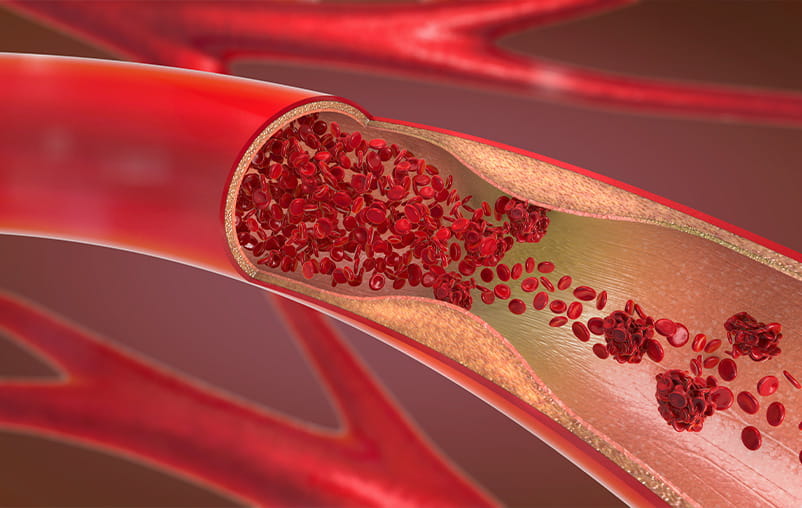Any new mom can tell you that the first days and weeks after giving birth can be overwhelming.
Pregnancy, labor and delivery challenge your body and your mind. After delivery, your estrogen and progesterone levels drop dramatically. On top of that, you’re now responsible for a teeny-tiny new addition to the world that is totally dependent on you.
While it’s entirely normal to feel a rollercoaster of emotions, how do you know if what you're feeling is postpartum depression?
Is It ‘Baby Blues’ or Postpartum Depression?
Up to 80% of new parents (both moms and dads) experience the “baby blues,” a condition that causes emotional highs and lows in the first days after a baby’s arrival. The baby blues typically go away within a couple weeks.
But in some cases, symptoms such as sadness and anxiety stick around for longer or are more severe. This is known as postpartum (or perinatal) depression.
While not as common as the baby blues, postpartum depression is still quite common. In fact, it’s one of the most common complications for women who’ve recently had a baby, affecting 1 in 7 individuals in the United States. These symptoms can occur before pregnancy (27%), during pregnancy (33%) or during the postpartum period (40%).
The Symptoms of Postpartum Depression
If you’re expecting a baby or have recently given birth, it’s a good idea to familiarize yourself with the signs and symptoms of postpartum depression. Experiencing depression after a significant life event like this is nothing to be ashamed of. It's a treatable medical condition, just like any other.
Symptoms of postpartum depression can include:
- Lingering sadness or a depressed mood
- Loss of interest in previously enjoyable things
- Changes in appetite, weight loss when not dieting or weight gain
- Difficulty sleeping or excessive amounts of sleeping
- Difficulty concentrating, remembering or indecisiveness
- Hopelessness, pessimism or trouble bonding with your baby
- Irritability
- Persistent doubts about your ability to be a mom, feelings of worthlessness or excessive guilt
- Restlessness or an inability to sit still
- Fatigue, loss of energy, withdrawal from family and friends
- Thoughts about harming your baby or yourself
These symptoms can begin before you give birth. That’s why many health organizations have started using the term “perinatal depression” acknowledging depression experienced both during pregnancy and after birth.
While less common, it’s also possible to experience perinatal anxiety, which causes symptoms such as fear, panic attacks, shortness of breath, dizziness and intrusive thoughts.
A patient who has depressed mood, loss of interest or pleasure, and at least four additional symptoms identified above may be diagnosed with postpartum depression. The symptoms should be present during the same two-week period and represent a change from previous functioning, said Dr. Erin Mankus, an OB/GYN with University Health.
One potential catalyst for postpartum depression can be if a woman stops taking medication during pregnancy.
“Make an appointment with your obstetrician and identify what medications you’re taking and why,” Dr. Mankus said. “Addressing depression during pregnancy is key to reducing the risk of postpartum depression.”
Who’s at Risk?
Any new mother can experience postpartum depression. It affects women of every age, race, background and socioeconomic status.
With that said, some women are at a higher risk than others. According to the Office on Women’s Health, risk factors for postpartum depression include:
- Being age 20 or younger
- Currently experiencing or having experienced domestic violence
- Dealing with stressful life events, such as financial problems
- Having a family history of depression
- Having depression previously
- Having difficulty breastfeeding
- Having experienced abuse or adversity during childhood
- Having had problems with a past pregnancy or birth
- Having little or no support from family and friends
Moms who have a difficult, traumatic or premature birth or whose babies have significant health needs are also at higher risk of developing postpartum depression.
Your health care provider should routinely ask about your emotional well-being during postpartum follow-up appointments. While the U.S. Preventive Services Task Force recommends this screening, it's not always consistently implemented. You are your own best health advocate. Don't wait for your provider to ask; bring it up yourself.
One Mom’s Story
Brittany Durment’s twin boys, Wyatt and Parker, were born prematurely and spent weeks in the NICU. Durment said that it was hard to leave her babies there and even harder to watch other mothers leaving the hospital with babies in their arms.
The twins eventually went home, but Dr. Mankus, Durment’s obstetrician, noticed that she was still struggling.
Dr. Mankus initiated the conversation at an appointment with Durment and helped her understand help was available. “Ultimately, it took someone saying, ‘I know you know this is how you are feeling, but this actually isn’t a good way,’” she recalled.
The new mom said talking about the situation with a supportive person is the best way to get started on the road back to a healthy emotional balance. “Just be honest and open up about it,” she added.
Experiencing symptoms of postpartum depression? Our behavioral health specialists can help. Find a women’s health clinic with a behavioral specialist near you.
Pregnancy and Postpartum Care with University Health
At our Women’s & Children’s Hospital, we offer moms and their babies care before, during and after pregnancy.
Moms who give birth at our hospital will have access to our CenteringPregnancy prenatal care program, which brings together a group of expecting mothers as a form of support. In addition, if you choose to receive care at one of our women’s clinics, you will be provided a patient navigator. This person will provide you personalized prenatal care and guidance throughout your pregnancy.
Community Resources
We are also taking steps to address community needs within Bexar County. This is why we are excited to offer resources for everyone, whether you receive care from us or not. Visit our Institute for Public Health for pregnancy and postpartum-related resources.





